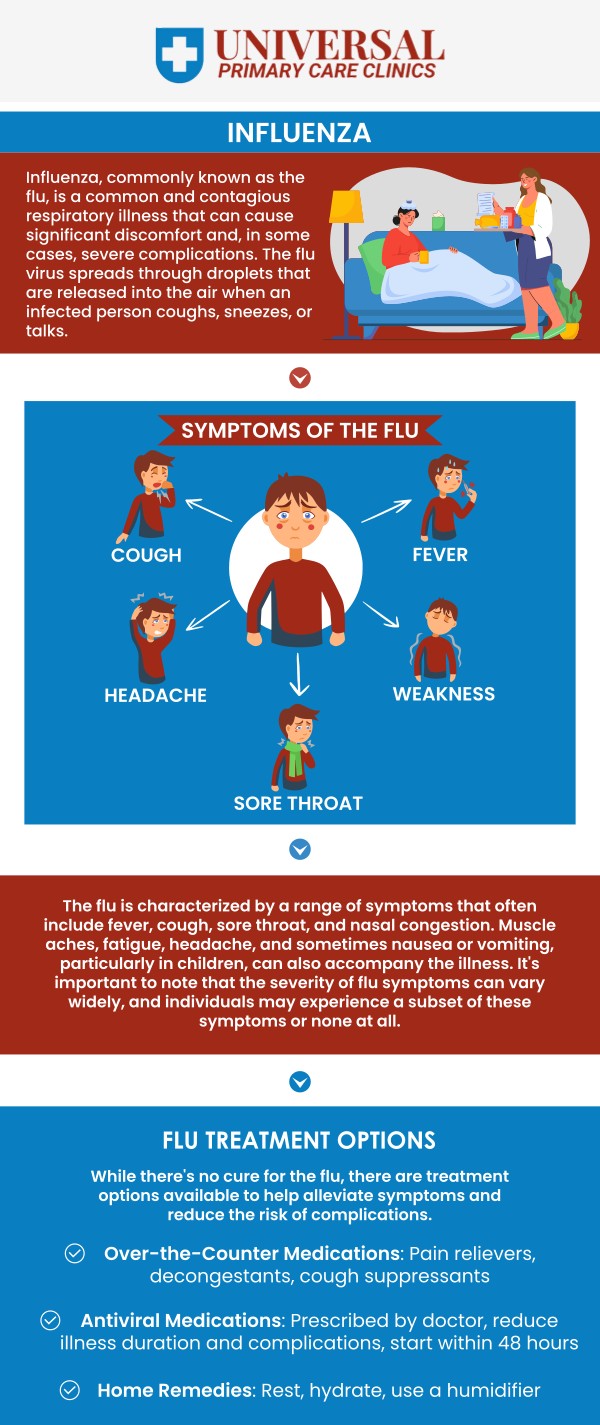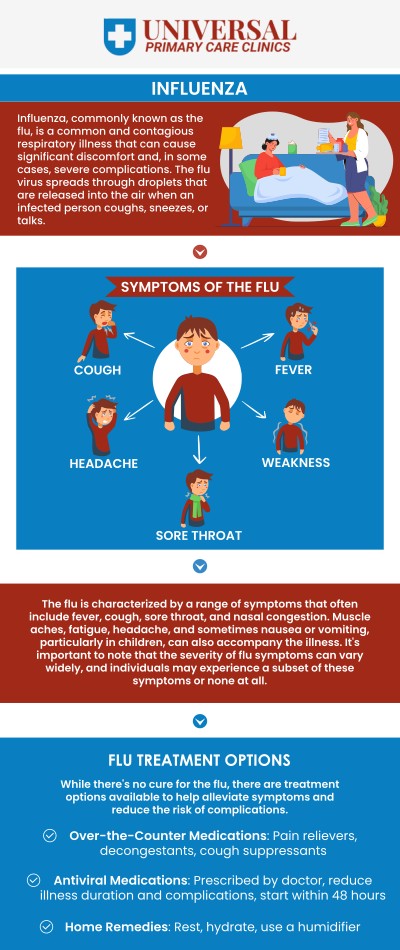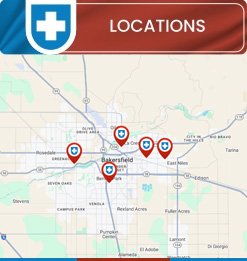Common Flu-Like Symptoms and Their Possible Causes
At Universal Primary Care, we understand that flu-like symptoms can be caused by a variety of conditions beyond just the flu. Symptoms such as fever, fatigue, body aches, and congestion may also indicate other illnesses like the common cold, respiratory infections, or even allergies. Our team is here to help you accurately identify the underlying cause of your symptoms through thorough evaluation and diagnostic testing. For more information, contact us or book an appointment online. We have convenient locations at Brimhall Primary Care Center, Ming Primary Care Clinic, Niles Primary Care Clinic, Universal Q-Street Primary Care, and Niles Family Medicine in Bakersfield, CA.


Check Out Our 5 Star Reviews



Additional Services You May Need
▸ Annual Physical Exam
▸ COVID-19 Testing
▸ Chronic Disease Management
▸ Vaccinations
▸ STD Testing
▸ Primary Care
▸ Influenza (Flu)
▸ Common Cold
▸ Asthma
▸ Medical Weight Loss
▸ Diabetes
▸ School Physicals Exam
▸ Sports Physicals
▸ EKG
▸ Geriatric Care
▸ View All Services


